Happy Tuesday my friend! I’m glad you are here reading this article and I’m also excited to announce the first appointment with a new series, which is the start of a collaboration with a friend who will literally take us around the globe.
Let me introduce “My Travel Diary Chronicles”
Tamara (I recommend you follow her on Instagram and Facebook) will take us with her in a series of incredible adventures across beautiful destinations, discovering the beauty and wilderness of Nature.
I’m Tamara, born in Viterbo but now living in the province of Como (Italy). I’ve traveled extensively for work and for passion, and I’ve discovered that every place hides beauties that deserve to be told. Sometimes these are found in human culture, other times in the uniqueness of animals or in the shapes and colors of plants, and sometimes in the carefully crafted stones. This is how my three great passions—travel, writing, and photography—have led me to attempt to translate into words the charm that certain places evoke.
Enough from my side, it’s time to dive into this first, wonderful trip into the heart of the Amazon.
Grab a coffee, take a seat, and enjoy!
There are no roads leading to Leticia, that little town on the Amazon River isolated from the world, the last “hint” of civilization before the impenetrable forest. Faced with the choice of reaching it by flight from Bogotá or 27 days of river navigation, we opted for the plane, and from there, a 70 km boat ride to Axel’s research center.
Navigating through a torrential downpour, first on the Amazon River, then on the Javari River, until we ventured into small channels snaking through increasingly dense vegetation. Eventually, the boat docks on one side of the river, where a steep wooden staircase climbs up a hill, revealing stilt houses that will be our base for exploring the forest over the next five days.
The night passes sleeplessly, trying to protect the equipment from the water relentlessly seeping into the shack, battered by a furious downpour. The wall is just a mosquito net and offers no protection from the elements nor from animals, as every time we move something, insects emerge, infesting the room and feeding my terror. But at dawn, through that same mosquito net, we are greeted by a vision that seems to come from another world.
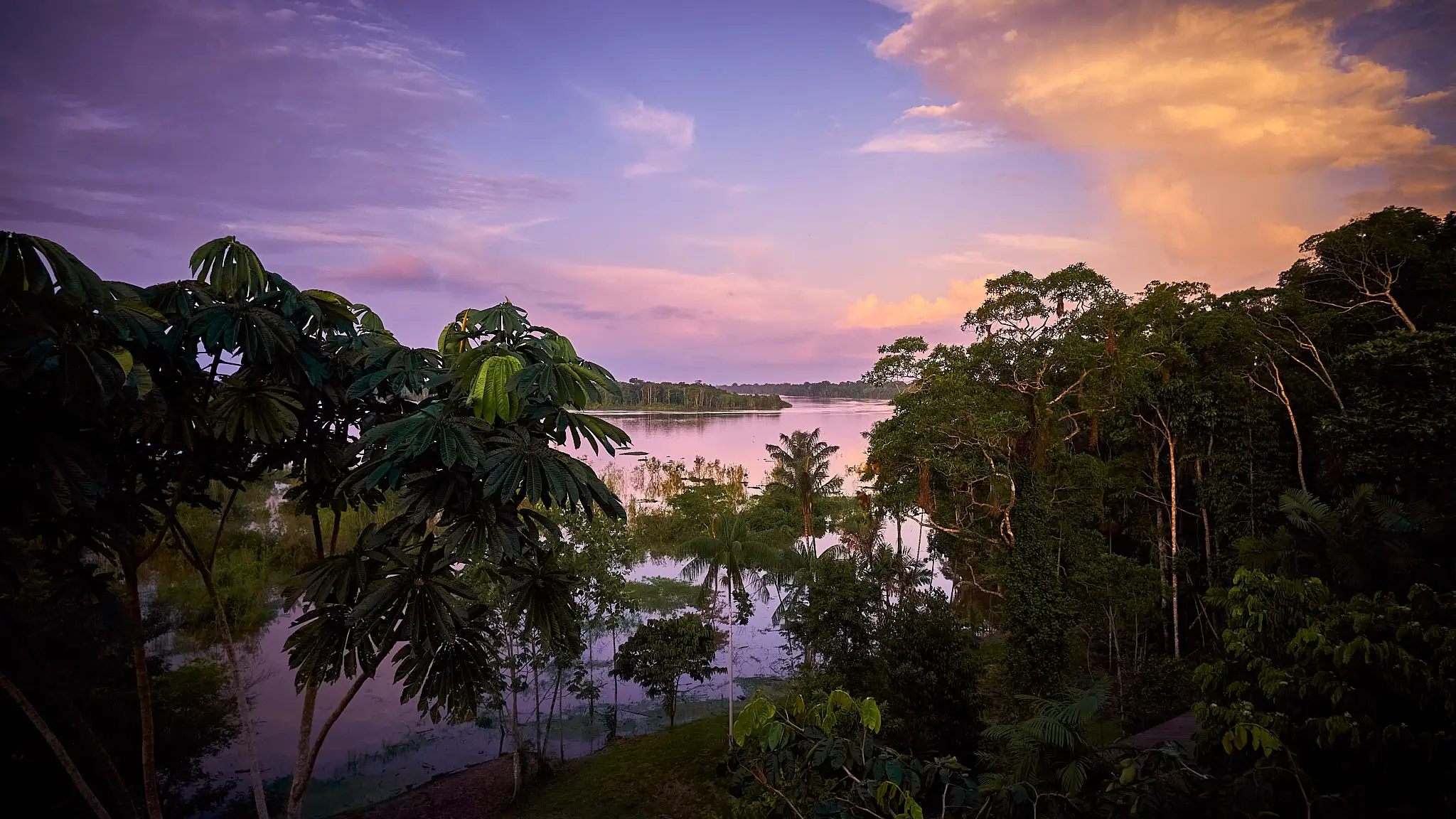
The violet, pink, and then orange hues of the sky are reflected in the lagoon beneath us, amidst an endless green forest, first dark green, then increasingly bright. And from that intense green emerge oropendolas, weaving their nests like bags suspended from the branches. A parrot with yellow and blue feathers soars into the sky, gracefully perching on the terrace railing, offering us a lively morning greeting. After the rain, our exploration begins in the mud; rubber boots and long sleeves to protect ourselves from the vast number of mosquitoes.
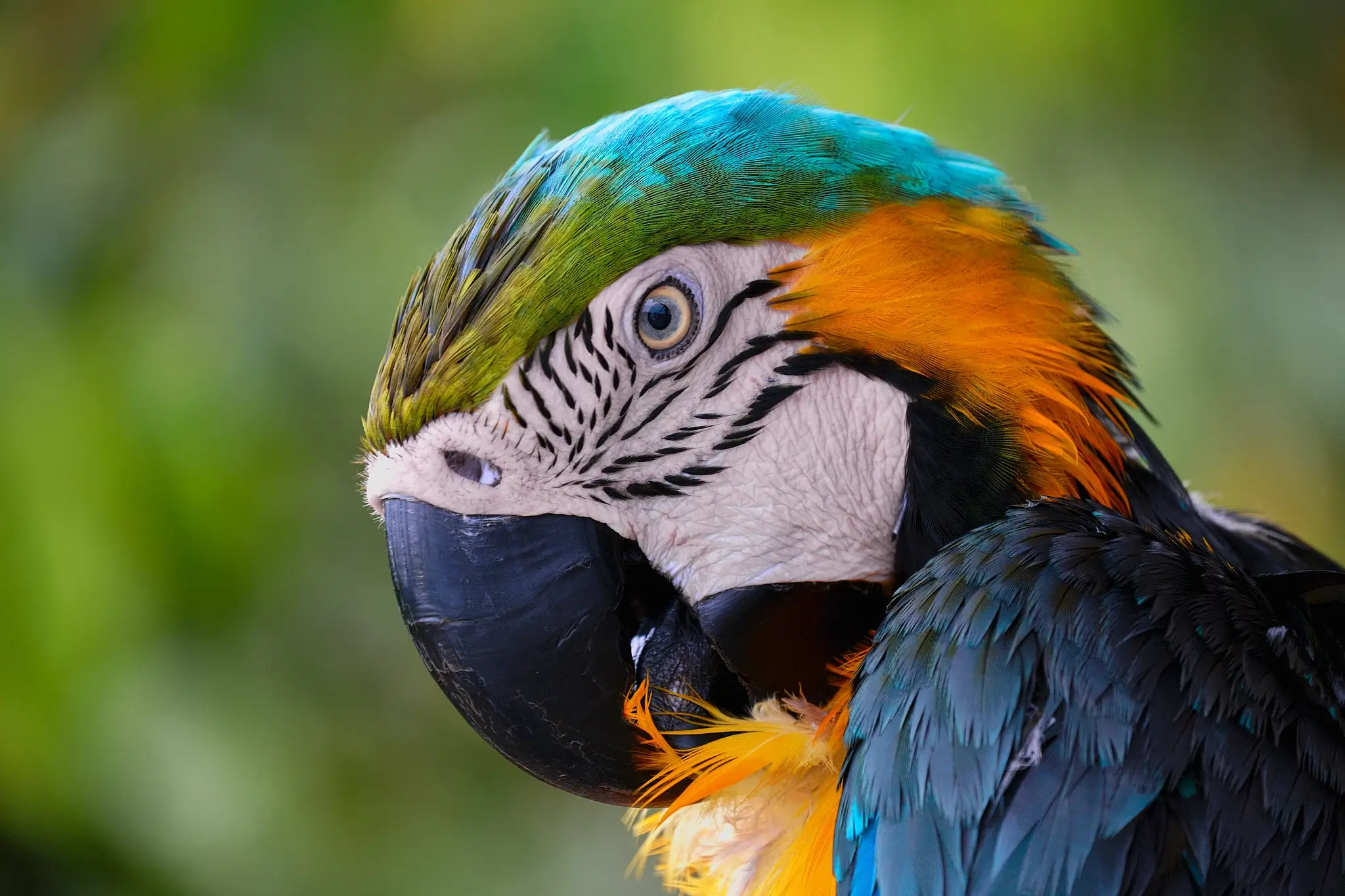
Monkeys leap between the branches, shaking them, and brightly coloured birds flutter around us. I chase the Blue Morpho, a giant butterfly with metallic blue wings. I try to distinguish the call of the toucan among a myriad of overlapping sounds, struggle with the camera to capture the colours of the flowers illuminated by the faint light filtering through the branches, and get excited to encounter the legendary harpy eagle, one of the largest and most powerful in the world, a rare and elusive creature—an extraordinary event.
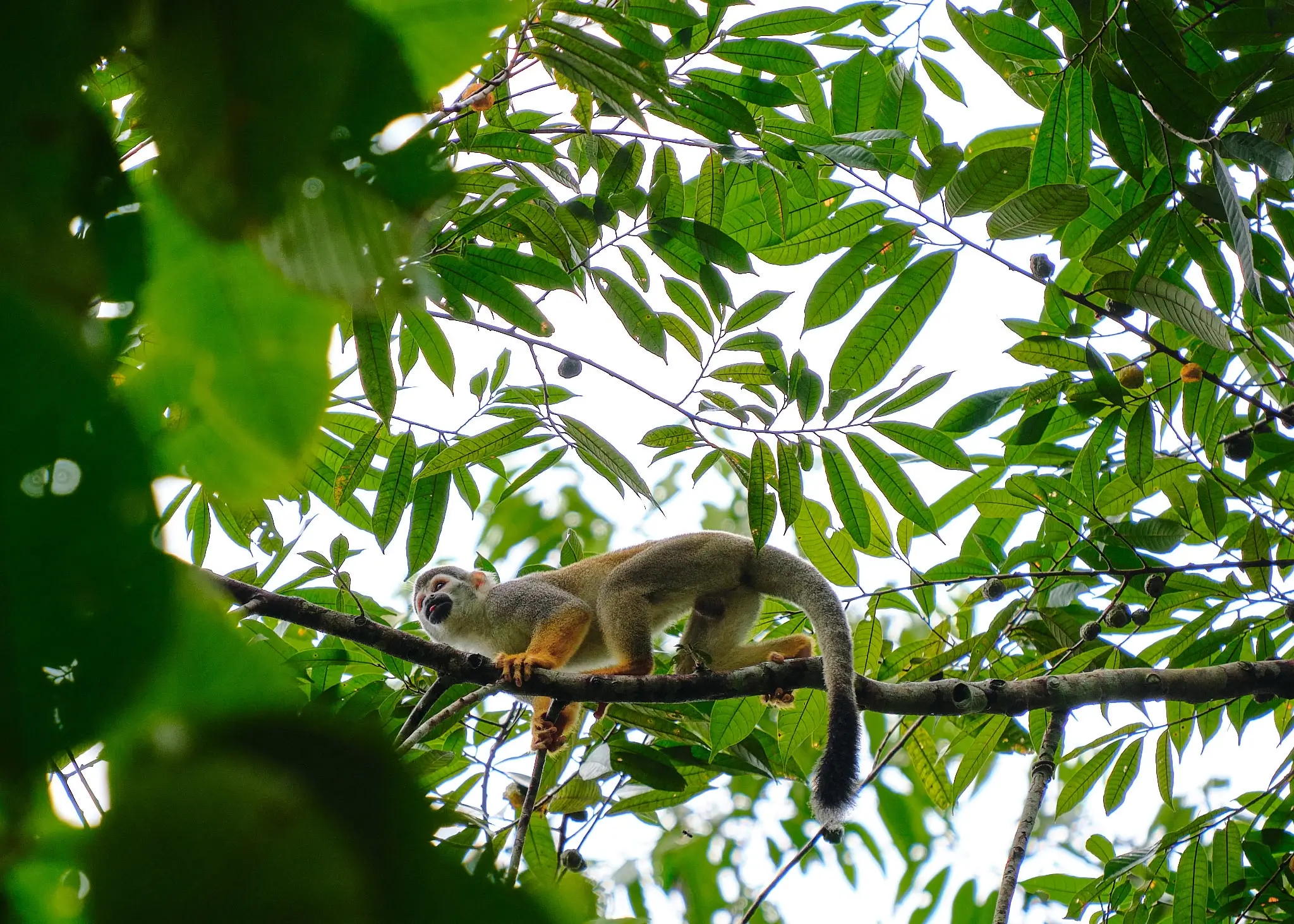
The familiar noises of the city are now far away. Our ears hear unknown sounds, the skin is sticky with over 90% humidity, the nose is stimulated by unfamiliar odours, and the eyes are dazzled by the shapes and colours of exuberant vegetation.
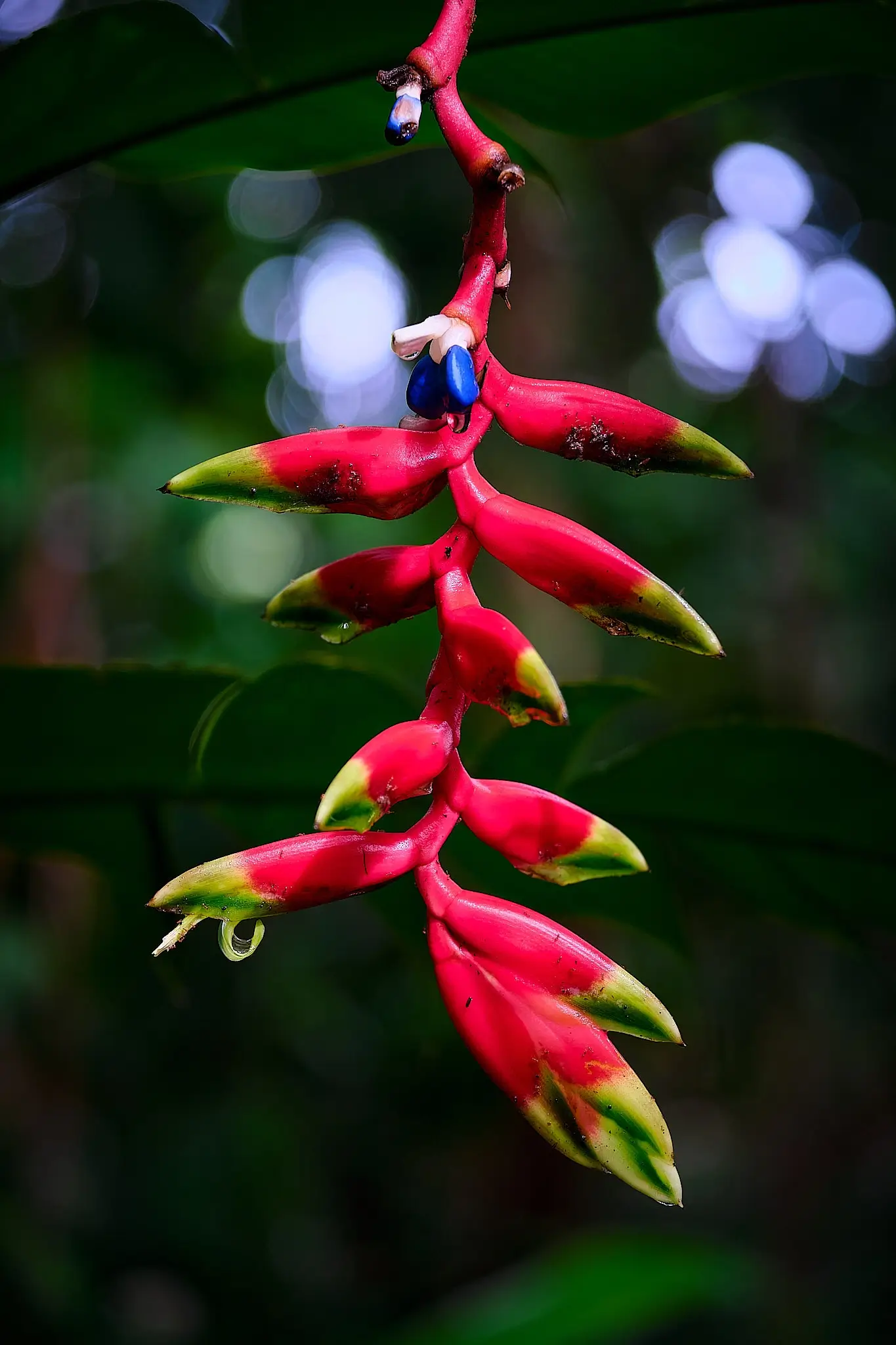
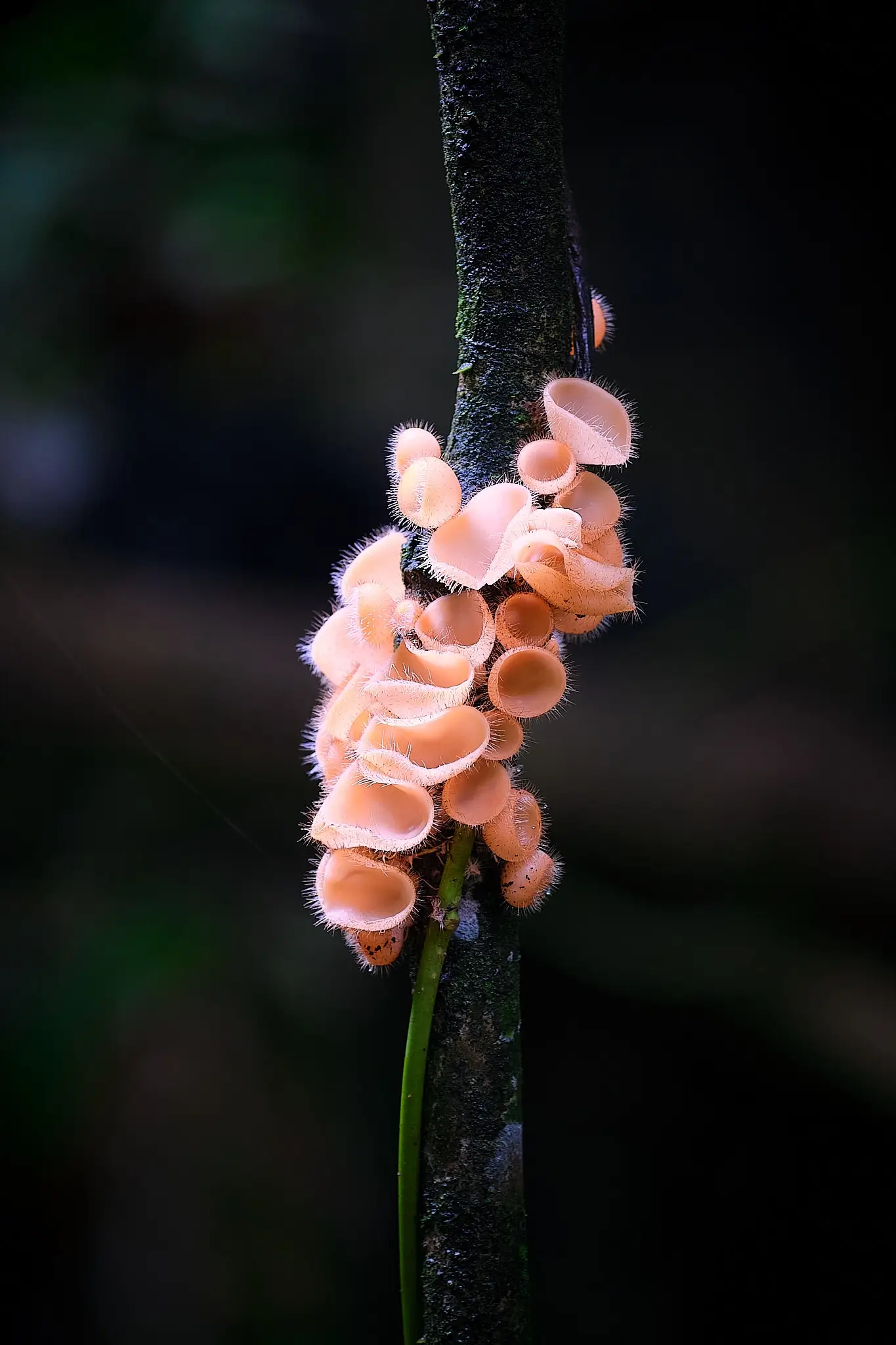
As darkness falls, bioluminescence lights up the night with an otherworldly charm, and the jungle comes alive with nocturnal creatures: scorpions, tarantulas, tiny fluorescent frogs, and insects of impressive size! And a snake on the latch of our shack reminds us that the danger is real.
“Tomorrow morning, after brushing my teeth with chlorinated water, I’ll need to remember to check inside my boots, because apparently, some strange ‘creature’ might take refuge in them overnight!” I tell myself.
It’s February, and the forest is partially flooded. In some areas, we are forced to proceed by kayak through the muddy waters where caimans hide and piranhas swim. The jungle is a chaotic wonder: mangroves, ancient trees with twisted trunks, plants fighting for a ray of light, and endless vines hanging from above, reaching down to touch the water.
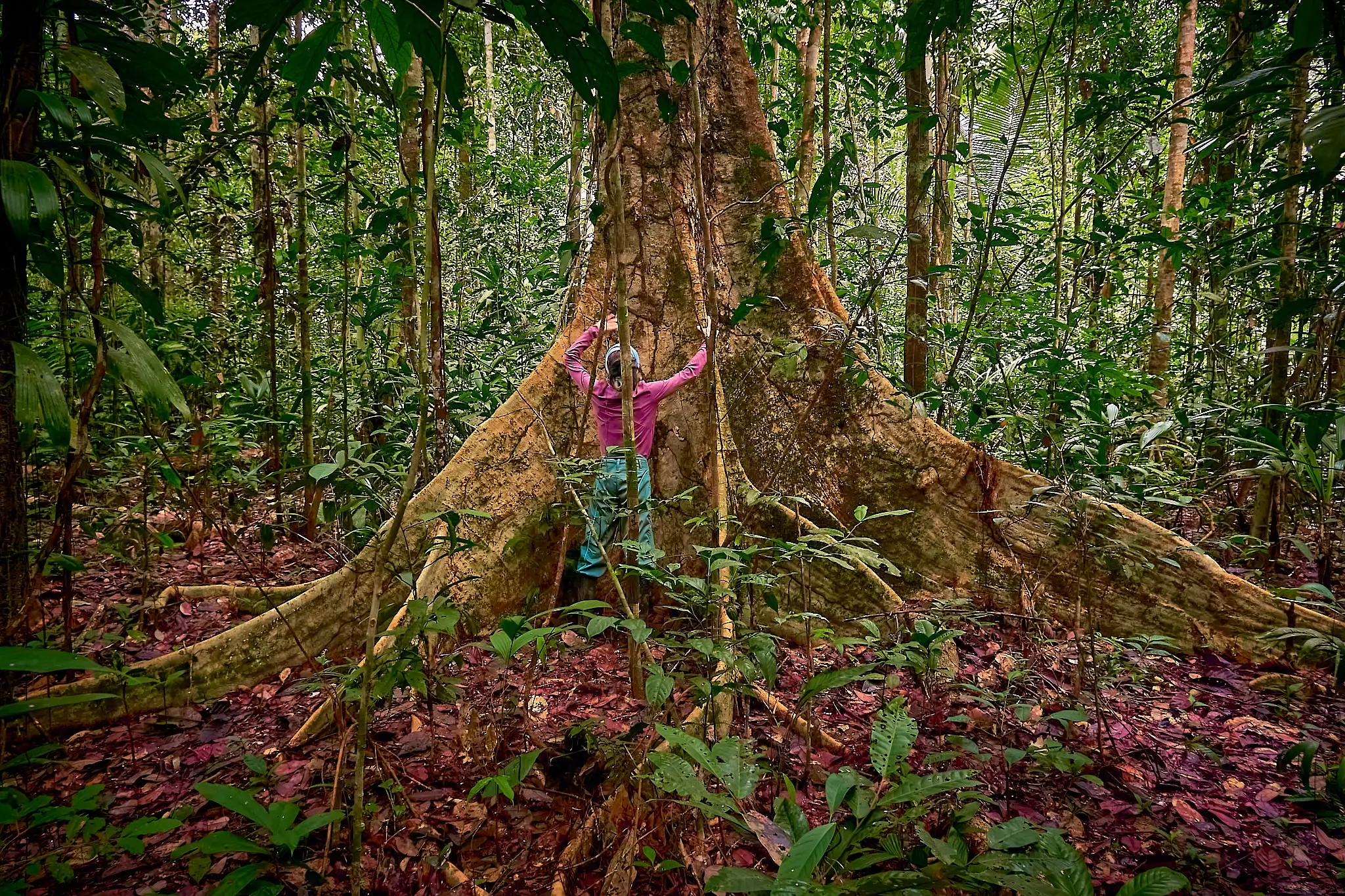
And as time moves slowly, paddling through that maze of channels and forests, we find ourselves suspended on the calm waters of a lake. The blazing sunset sky reflects perfectly on the surface, making it hard to tell reality from its reflection, if not for the pink dolphins breaking through the water, their leaps tracing sprays of water that sparkle like stars.
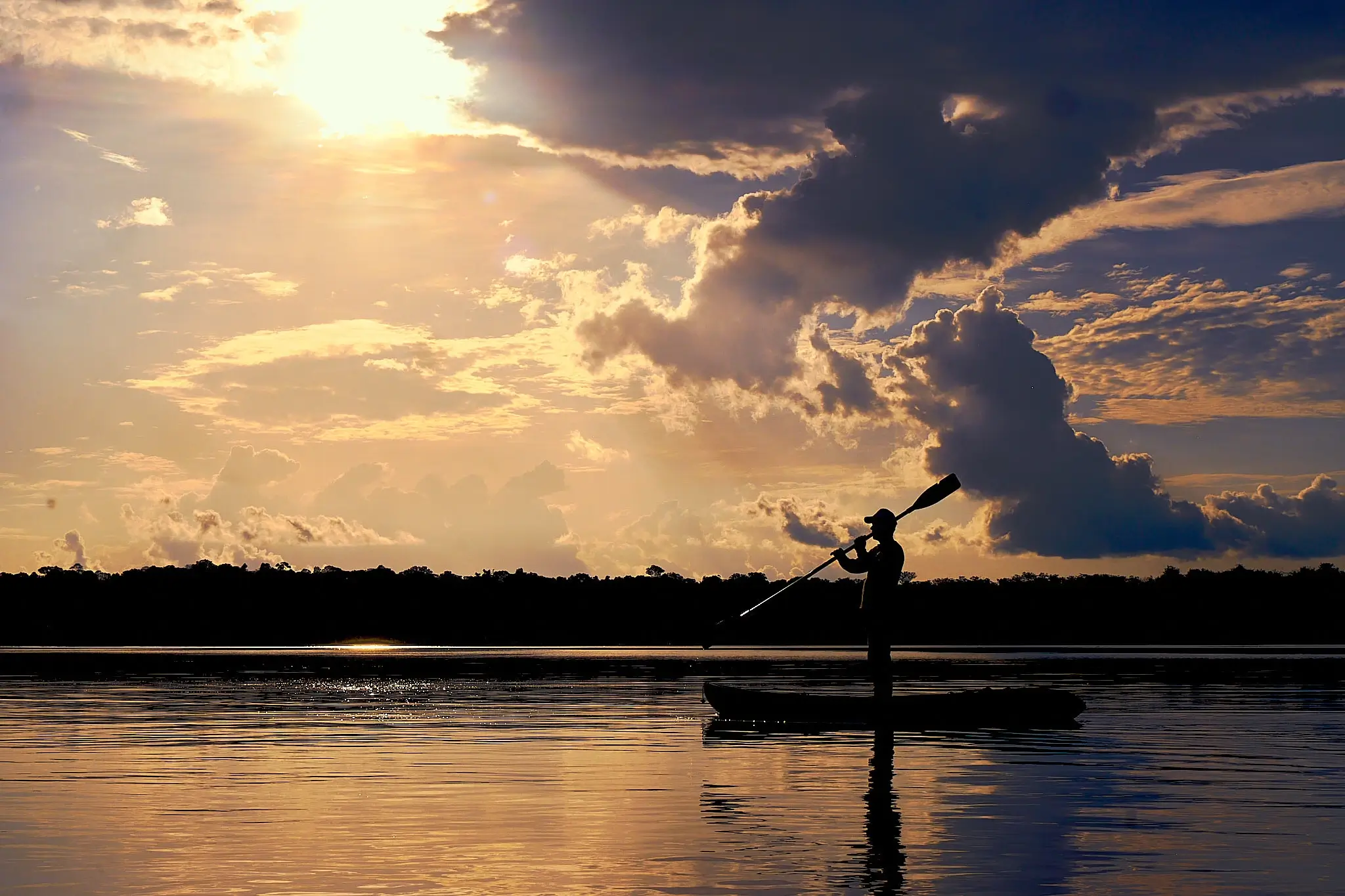
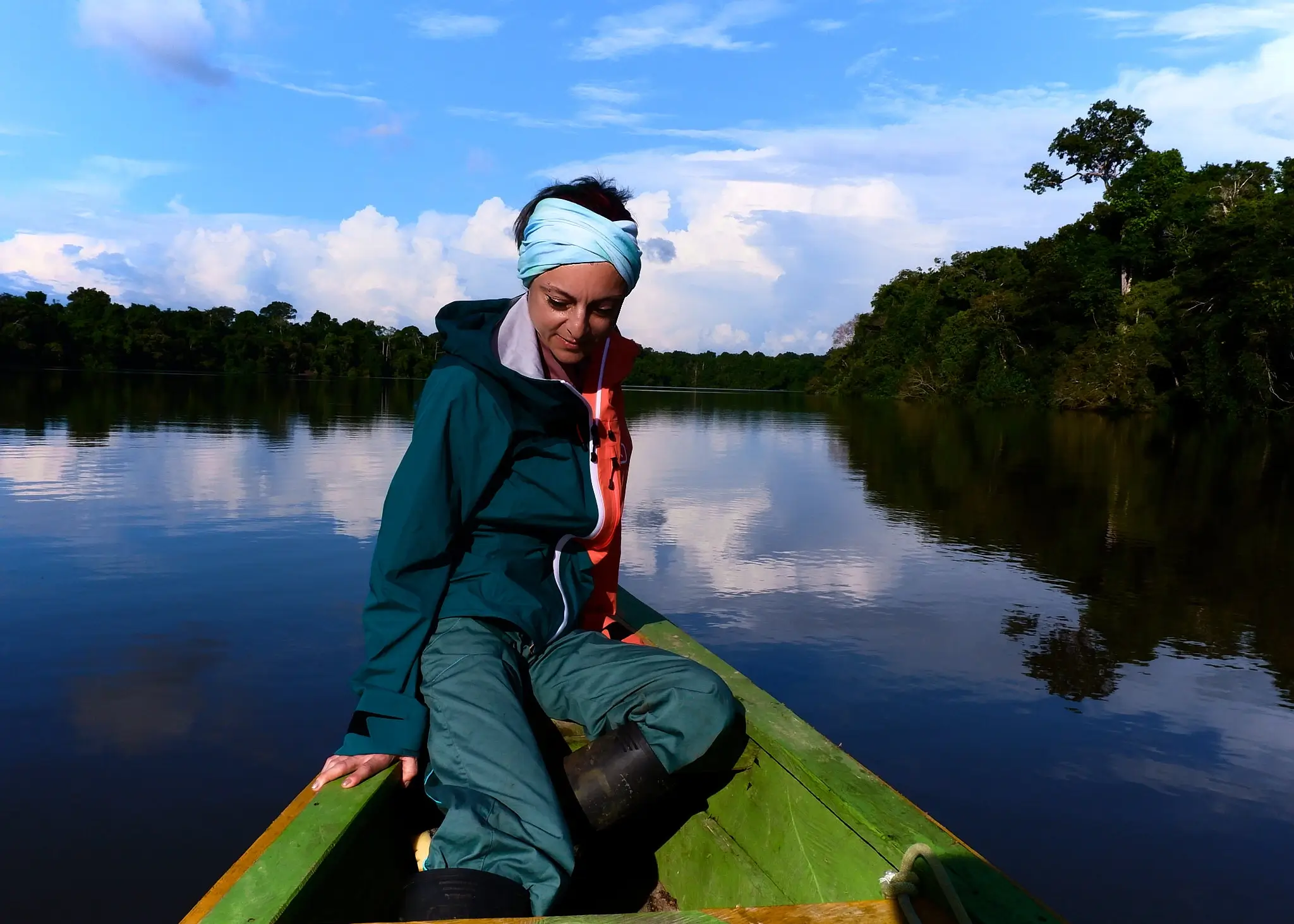
Back on the stilt house, I sit down to eat the piranha we caught, and something falls on my head, making me jump in fright. It’s a salamander. The second night, another amphibian falls on my shoulder. I think it’s another salamander. On the third night, I look at the roof beam to carefully choose where to sit. I scrutinize above, but also below, because snakes slip through the cracks in the floor. And if you let the boa slither, you cut the coral snake in half with a machete because its bite is deadly.
You quickly learn what to let approach and what to keep at a distance. Here, it’s always a matter of life or death; you realize this when your guide contracts malaria, and you think the mosquito that bit him buzzed just inches from you.
It’s a tale without a moral. A universe that survives without concepts of “good” and “evil.” It’s Nature, majestic and dominating, that knows no racism, and you are just another living being. The hungry jaguar will eat you. Just as the mosquitoes will bite you. The snake you accidentally disturb will bite you. Not out of malice, but because these are the rules of the jungle.
I struggle to find the words to describe the Amazon. These are intense, hard days. Here, we live like savages: you don’t bathe, you can eat very little, and the water must be purified with disinfectant. There are no comforts, just the raw wonder of a magnificent place. The Amazon is not for everyone, but some sounds, smells, and sights capture the soul, holding it prisoner forever.
Take care and talk soon!